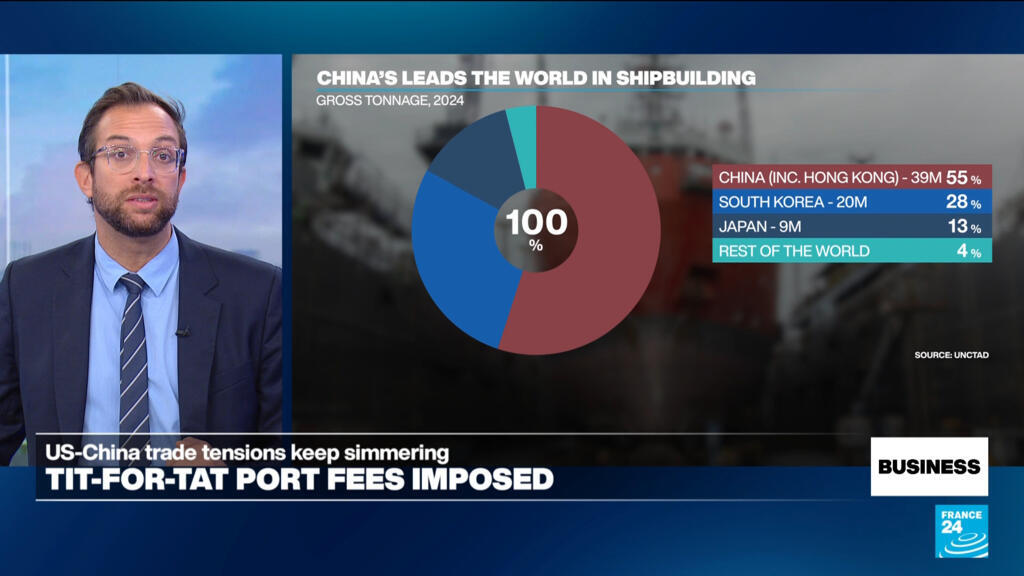Trade War Escalation
The trade war between the world’s two largest economies, China and the United States, has escalated with the imposition of new port fees. These fees, which came into force on Tuesday, mark a new front in the ongoing trade tensions between Washington and Beijing.
Reasons for the New Fees
The imposition of port fees by both China and the United States is a result of the ongoing trade negotiations between the two countries. The fees are seen as a way to exert pressure on each other to reach a trade agreement. China’s decision to impose fees on U.S. imports is a response to the U.S. tariffs on Chinese goods, while the U.S. fees on Chinese imports are a way to counter China’s trade practices.
Impact on Trade Talks
The new port fees are likely to have a significant impact on the broader trade talks between Washington and Beijing. The fees will increase the cost of trade between the two countries, making it more expensive for businesses to import and export goods. This could lead to a slowdown in trade between the two countries, which could have far-reaching consequences for the global economy.
U.S. Soybean Farmers Affected
One of the industries that will be heavily affected by the trade war is U.S. soybean farming. China’s import ban on U.S.-produced soybeans has already had a significant impact on U.S. soybean farmers, who rely heavily on exports to China. The new port fees will only add to the challenges faced by these farmers, making it even more difficult for them to export their products to China.
Implications for the Global Economy
The trade war between China and the United States has significant implications for the global economy. The imposition of port fees and tariffs will increase the cost of trade, leading to higher prices for consumers and businesses. This could lead to a slowdown in economic growth, not just in China and the United States, but also in other countries that rely on trade with these two economies. The trade war also has the potential to disrupt global supply chains, leading to shortages and delays in the delivery of goods.

